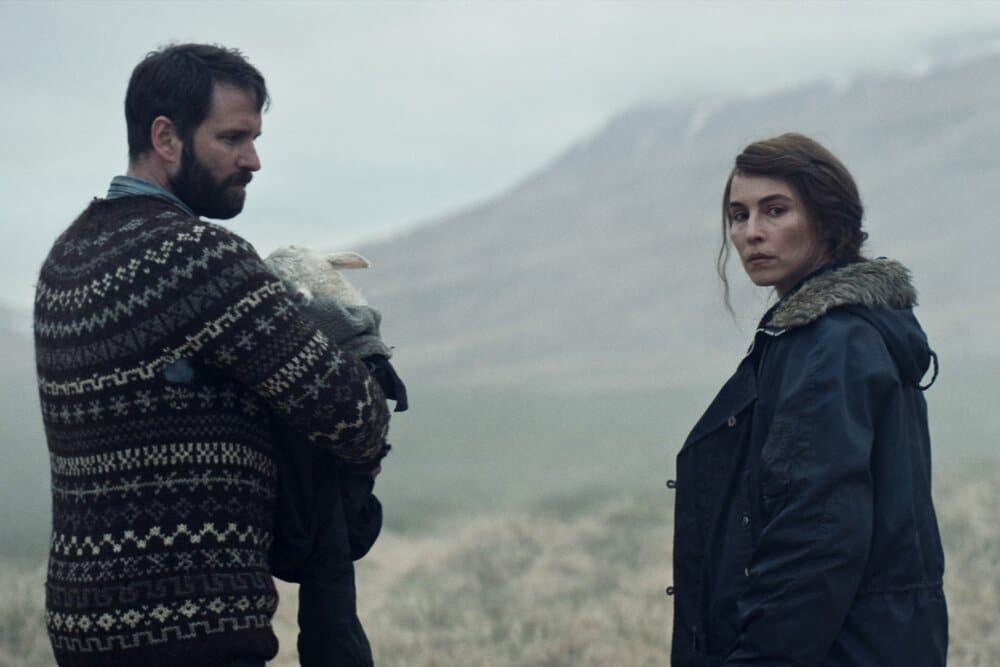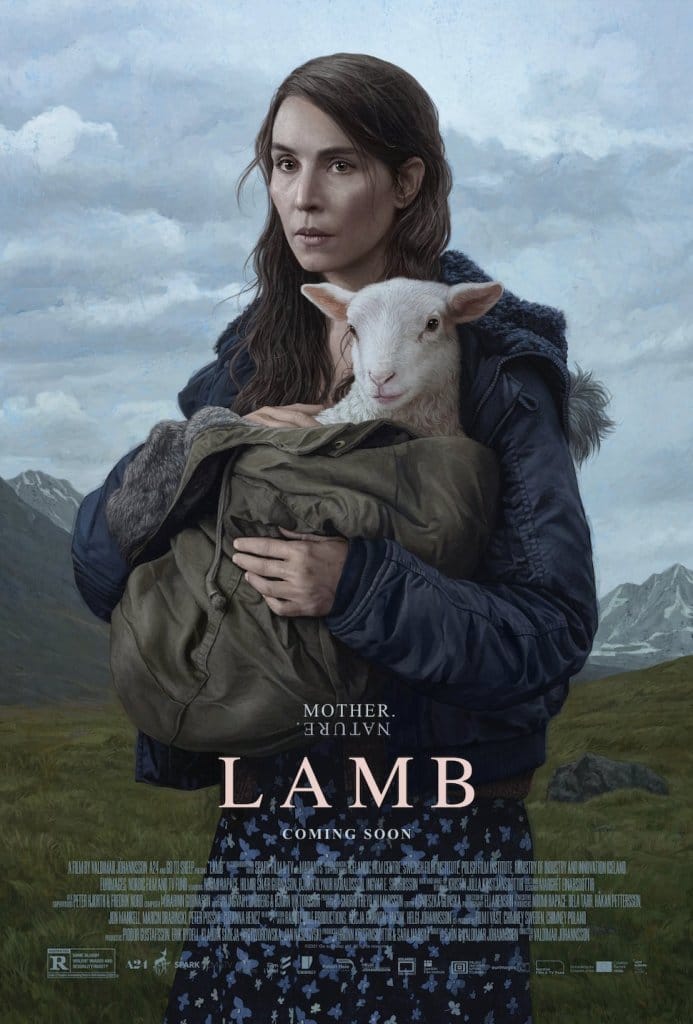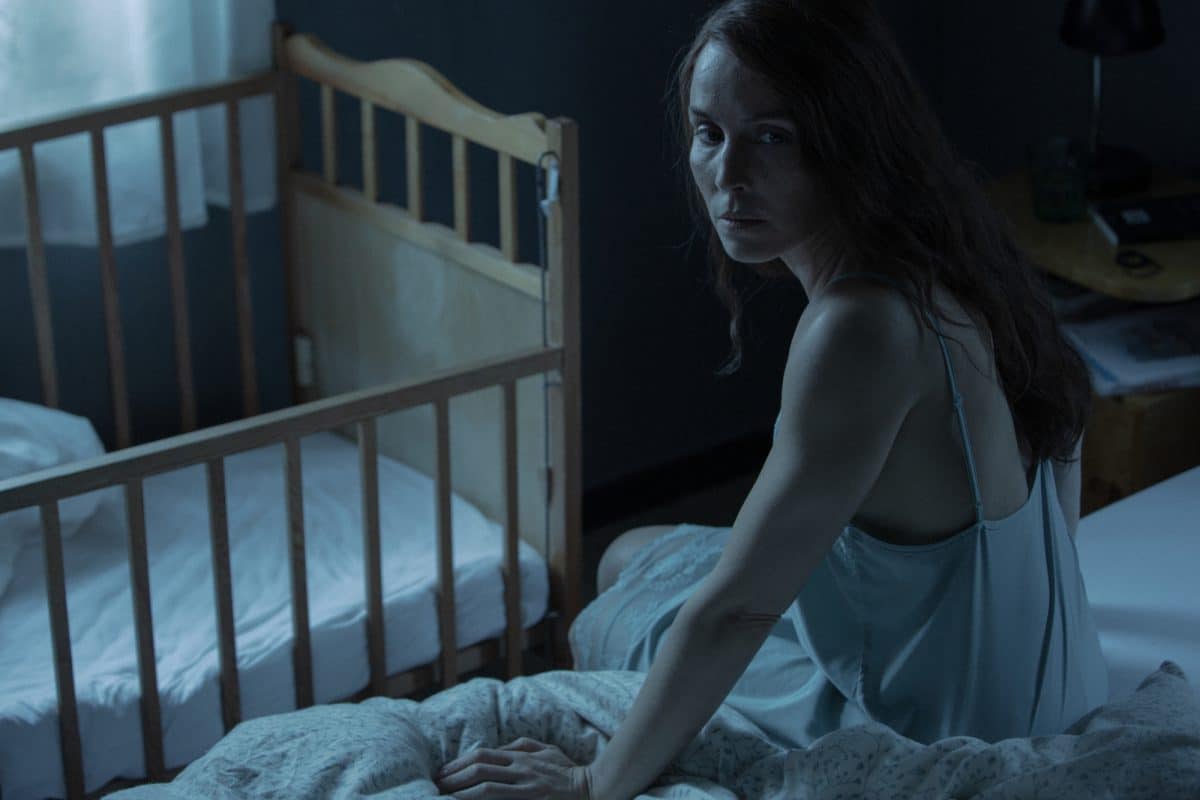
There no other obvious way to start this review than by saying: Lamb is an odd one. Beautiful; sure. Evocative; yes. However, it only tantalises at the mythology or events which underpin the narrative, and as such the world it offers is a partial one. How forgiving you are of this will depend on how you weight aesthetics and mood against old fashioned coherence.
Lamb is loosely based on a story from Icelandic folklore – though you would only know that if you’d read the film’s ‘liner notes’ – and it features a married couple, Maria (Noomi Rapace) and Ingvar (Hilmir Snær Guðnaso). They are sheep farmers somewhere in remote Iceland, a thankless enough task, but one underpinned by a certain lack of communication between them; they simply get on with the jobs at hand. Other critiques have noted their relationship as characterised by deep misery, though this reviewer didn’t read it as anything that severe, more a kind of unsaid acceptance of their lot. Things are about to change, however. At winter, something ‘other than normal’ seems to be threatening their flock (and one of the things which this film does amazingly is to show animals apparently getting into their acting roles). Come lambing season, one of their ewes delivers a lamb with some sort of as-yet unseen difference. Rather than placing the lamb back with its mother, Maria takes it – wrapping it with a shawl as if it was a human baby. This all happens very early on in the film, by the way, so hopefully isn’t a spoiler; more anon.

At this point, her decision to do so is a mystery; likewise, the acceptance of this lamb, christened ‘Ada’ by Maria, simply takes place with a largely accepting response from Ingvar. Maria’s maternal jealousy swiftly shapes events for the worse, but it’s the fact that Ada seems to be some kind of human-sheep hybrid which begs the most questions; neither ‘parent’ questions it. The return of Ingvar’s brother Petur (Björn Hlynur Haraldsson) affords the script one or two opportunities to question this bizarre course of events, but other than generating a handful of suggestions of some kind of sexual undertone between Maria and Petur, simply slots another family member into this set-up. We simply observe what Ingvar refers to as their “happiness” in raising little Ada.
The film is sweet and considerate of this happiness, and this is one of its key strengths. Indeed, Lamb did not turn out as I expected, which was either as a symbolic exploration of the pain of loss, or a riff on the perils of nurturing unnatural offspring – something like Grace (2009). Lamb is neither of those, and Ada – even as a CGI-generated entity – is a pleasant little critter; director Valdimar Jóhannsson has done a great job capturing the nuances and commonplace gestures of small children, even if said small child isn’t your average child (can we also assume that putting Ada in a wool sweater was an example of the film’s few moments of dark humour?) But in focusing on this meandering family bliss, the film omits things, choosing to say almost nothing about bereavement or the impact of it. There are gaps, which prioritise atmosphere, but at some expense to how easy it is to engage with these events. Given that the film opts for the trendy device of adding on-screen title chapters, there must have been some awareness of providing structure and linearity, but it doesn’t really arrive. (That being said, do not watch the film trailer, which condenses down all the measurable plot points and therefore ruins them in ways which no review has done).
Lamb has many merits – its performances, its terrific setting, its quite unique strangeness – but it can’t quite offset its omissions with these. Taken as a whole, though, it’s a gentle and considerate piece of work which will charm many viewers with its careful ambience.
Lamb (2021) screened as part of the Celluloid Screams film festival in Sheffield, UK.
